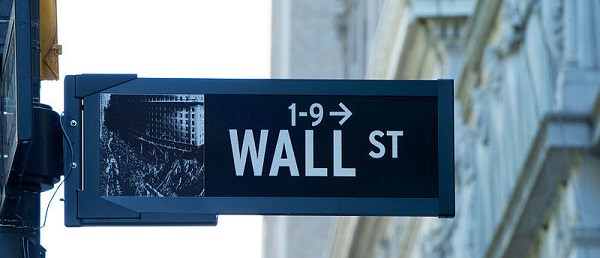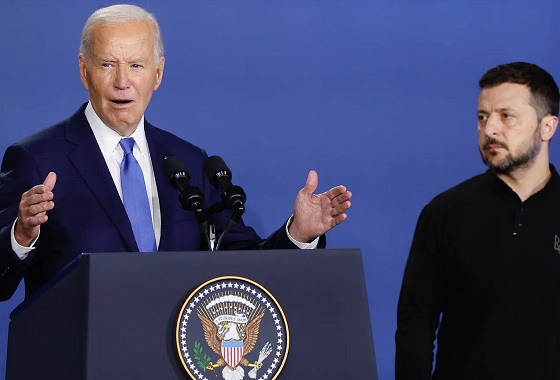Uncategorized
Over 800 dead in Indonesia quake and tsunami; toll may rise

PALU, Indonesia — Rescuers struggled Sunday to reach victims in several large coastal towns in Indonesia that were hit by an earthquake and tsunami, and authorities feared that the toll of more than 800 confirmed dead would rise.
With the area largely cut off by damaged roads and downed communications lines, military and commercial aircraft were delivering some aid and supplies to the hard-hit city of Palu on the island of Sulawesi, and others in the region.
But there was a desperate need for heavy equipment to reach possible survivors buried in collapsed buildings, including an eight-story hotel in Palu where voices were heard in the rubble. A 25-year-old woman was found alive during the evening in the ruins of the Roa-Roa Hotel, according to the National Search and Rescue Agency, which released photos of the her lying on a stretcher covered in a blanket.
At least 832 people were confirmed killed by the quake and tsunami that struck Friday evening, Indonesia’s disaster agency said, with nearly all of those from Palu. The regencies of Donggala, Sigi and Parigi Moutong — with a combined population of 1.2 million — had yet to be fully assessed.
“The death toll is believed to be still increasing, since many bodies were still under the wreckage, while many have not been reached,” said disaster agency spokesman Sutopo Purwo Nugroho.
Bodies covered in blue and yellow tarps lined the streets of Palu, and officials said they were digging a mass grave for at least 300 of the dead.
It was not immediately known when the burial would take place, but “this must be done as soon as possible for health and religious reasons,” said Willem Rampangilei, head of the National Disaster Mitigation Agency. Most of Palu’s residents are Muslim.
The cries from beneath the Roa-Roa Hotel, which appeared to have toppled over with its walls splintered like pickup sticks, went silent by Sunday afternoon. Officials had estimated about 50 people could be inside.
“We are trying our best. Time is so important here to save people,” said Muhammad Syaugi, head of the national search and rescue team. “Heavy equipment is on the way.”
Metro TV showed about a dozen rescuers in orange jumpsuits climbing over debris with a stretcher carrying the body of a victim from the modest business hotel.
Other rescuers worked to free a 15-year-old girl trapped under concrete in her house in Palu after it collapsed on her family during the magnitude 7.5 earthquake that spawned a tsunami.
Unable to move her legs under the rubble, Nurul Istikharah was trapped beside her dead mother and niece. Rescuers also tried to control water from a leaking pipe, fearing she would drown.
Istikharah was unconscious during part of the effort to free her, but rescuers kept talking to her to try to keep her awake. Others offered her food and water.
Indonesian President Joko “Jokowi” Widodo toured Palu on Sunday and said rescuers were having difficulty reaching victims because of a shortage of heavy equipment.
“There are many challenges,” Jokowi said. “We have to do many things soon, but conditions do not allow us to do so.”
He said authorities were deploying more heavy machinery so emergency workers can help recover more victims Monday.
The stricken areas also needed medical supplies, fuel, fresh water and experts.
It was the latest natural disaster to hit Indonesia, which is frequently struck by earthquakes, volcanic eruptions and tsunamis because of its location on the “Ring of Fire,” an arc of volcanoes and fault lines in the Pacific Basin. In December 2004, a massive magnitude 9.1 earthquake off Sumatra island in western Indonesia triggered a tsunami that killed 230,000 people in a dozen countries. More recently, a powerful quake on the island of Lombok killed 505 people in August.
In Donggala, the site closest to the epicenter of Friday’s earthquake, aerial footage on Metro TV showed the sugary blond sands of beaches swept out to sea, along with some buildings. Some buildings in the town were severely damaged, with plywood walls shredded and chunks of concrete scattered on the pavement. Much of the damage, however, appeared limited to the waterfront.
Palu, which has more than 380,000 people, was strewn with debris from the earthquake and tsunami. A heavily damaged mosque was half submerged and a shopping mall was reduced to a crumpled hulk. A large bridge with yellow arches had collapsed.
The city is built around a narrow bay that apparently magnified the force of the tsunami as the waves raced into the tight inlet. Nugroho, the disaster agency spokesman, said waves were reported as high as 6
Looters hit a badly damaged shopping mall, apparently unconcerned for their safety amid ongoing aftershocks and the structure’s questionable stability.
In one devastated area in Palu, residents said dozens of people could still be buried in their homes.
“The ground rose up like a spine and suddenly fell. Many people were trapped and buried under collapsed houses. I could do nothing to help,” resident Nur Indah said, crying. “In the evening, some of them turned on their cellphones just to give a sign that they were there. But the lights were off later and the next day.”
With hundreds injured, earthquake-damaged hospitals were overwhelmed.
Nugroho said 61 foreigners were in Palu at the time of the disaster. Most were accounted for, but one South Korean was believed to be trapped in the Roa-Roa Hotel, while three others from France and one from Malaysia were missing. The survivors were to be evacuated to the Sulawesi city of Makassar in the island’s far south.
Communications with the area were difficult because power and telecommunications were cut, hampering rescue efforts. Most people have slept outdoors, fearing strong aftershocks.
Indonesia is a vast archipelago of more than 17,000 islands that span a distance that would stretch from New York to London. It is home to 260 million people. Roads and infrastructure are poor in many areas, making access difficult in the best of conditions.
The disaster agency has said that essential aircraft can land at Palu’s airport, though AirNav, which oversees aircraft navigation, said the runway was cracked and the control tower damaged.
Sulawesi has a history of religious tensions between Muslims and Christians, with violent riots erupting in the town of Poso, not far from Palu, two decades ago. Indonesia is the world’s most populous Muslim country.
___
Associated Press writers Margie Mason in Jakarta, Indonesia, and Stephen Wright in Makassar, Indonesia, contributed.
Niniek Karmini, The Associated Press
Uncategorized
Poilievre on 2025 Election Interference – Carney sill hasn’t fired Liberal MP in Chinese election interference scandal

From Conservative Party Communications
“Yes. He must be disqualified. I find it incredible that Mark Carney would allow someone to run for his party that called for a Canadian citizen to be handed over to a foreign government on a bounty, a foreign government that would almost certainly execute that Canadian citizen.
“Think about that for a second. We have a Liberal MP saying that a Canadian citizen should be handed over to a foreign dictatorship to get a bounty so that that citizen could be murdered. And Mark Carney says he should stay on as a candidate. What does that say about whether Mark Carney would protect Canadians?
“Mark Carney is deeply conflicted. Just in November, he went to Beijing and secured a quarter-billion-dollar loan for his company from a state-owned Chinese bank. He’s deeply compromised, and he will never stand up for Canada against any foreign regime. It is another reason why Mr. Carney must show us all his assets, all the money he owes, all the money that his companies owe to foreign hostile regimes. And this story might not be entirely the story of the bounty, and a Liberal MP calling for a Canadian to be handed over for execution to a foreign government might not be something that the everyday Canadian can relate to because it’s so outrageous. But I ask you this, if Mark Carney would allow his Liberal MP to make a comment like this, when would he ever protect Canada or Canadians against foreign hostility?
“He has never put Canada first, and that’s why we cannot have a fourth Liberal term. After the Lost Liberal Decade, our country is a playground for foreign interference. Our economy is weaker than ever before. Our people more divided. We need a change to put Canada first with a new government that will stand up for the security and economy of our citizens and take back control of our destiny. Let’s bring it home.”
Uncategorized
Canada Needs A Real Plan To Compete Globally

From the Frontier Centre for Public Policy
Ottawa’s ideological policies have left Canada vulnerable. Strategic action is needed now
As Canada navigates an increasingly complex geopolitical landscape, the next federal government must move beyond reflexive anti—Americanism regardless of its political leanings. Instead, Canada should prioritize national interests while avoiding unnecessary conflict and subservience.
The notion that Canada can stand alone is as misguided as the idea that it is only an economic appendage of the United States. Both perspectives have influenced policy in Ottawa at different times, leading to mistakes.
Rather than engaging in futile name-calling or trade disputes, Canada must take strategic steps to reinforce its autonomy. This approach requires a pragmatic view rooted in Realpolitik—recognizing global realities, mitigating risks, governing for the whole country, and seizing opportunities while abandoning failed ideologies.
However, if Washington continues to pursue protectionist measures, Canada must find effective ways to counteract the weakened position Ottawa has placed the country in over the past decade.
One key strategy is diversifying trade relationships, notably by expanding economic ties with emerging markets such as India and Southeast Asia. This will require repairing Canada’s strained relationship with India and regaining political respect in China.
Unlike past Liberal trade missions, which often prioritized ideological talking points over substance, Canada must negotiate deals that protect domestic industries rather than turning summits into platforms for moral posturing.
A more effective approach would be strengthening partnerships with countries that value Canadian resources instead of vilifying them under misguided environmental policies. Expand LNG exports to Europe and Asia and leverage Canada’s critical minerals sector to establish reciprocal supply chains with non-Western economies, reducing economic reliance on the U.S.
Decades of complacency have left Canada vulnerable to American influence over its resource sector. Foreign-funded environmental groups have weakened domestic energy production, handing U.S. industries a strategic advantage. Ottawa must counter this by ensuring Canadian energy is developed at home rather than allowing suppressed domestic production to benefit foreign competitors.
Likewise, a robust industrial policy—prioritizing mining, manufacturing, and agricultural resilience—could reduce dependence on U.S. and Chinese imports. This does not mean adopting European-style subsidies but rather eliminating excessive regulations that make Canadian businesses uncompetitive, including costly domestic carbon tariffs.
Another key vulnerability is Canada’s growing military dependence on the U.S. through NORAD and NATO. While alliances are essential, decades of underfunding and neglect have turned the Canadian Armed Forces into little more than a symbolic force. Canada must learn self-reliance and commit to serious investment in defence.
Increasing defence spending—not to meet NATO targets but to build deterrence—is essential. Ottawa must reform its outdated procurement processes and develop a domestic defence manufacturing base, reducing reliance on foreign arms deals.
Canada’s vast Arctic is also at risk. Without continued investment in northern sovereignty, Ottawa may find itself locked out of its own backyard by more assertive global powers.
For too long, Canada has relied on an economic model that prioritizes federal redistribution over wealth creation and productivity. A competitive tax regime—one that attracts investment instead of punishing success—is essential.
A capital gains tax hike might satisfy activists in Toronto, but it does little to attract investments and encourage economic growth. Likewise, Ottawa must abandon ideological green policies that threaten agri-food production, whether by overregulating farmers or ranchers. At the same time, it must address inefficiencies in supply management once and for all. Canada must be able to feed a growing world without unnecessary bureaucratic obstacles.
Ottawa must also create an environment where businesses can innovate and grow without excessive regulatory burdens. This includes eliminating interprovincial trade barriers that stifle commerce.
Similarly, Canada’s tech sector, long hindered by predatory regulations, should be freed from excessive government interference. Instead of suffocating innovation with compliance mandates, Ottawa should focus on deregulation while implementing stronger security measures for foreign tech firms operating in Canada.
Perhaps Ottawa’s greatest mistake is its knee-jerk reactions to American policies, made without a coherent long-term strategy. Performative trade disputes with Washington and symbolic grandstanding in multilateral organizations do little to advance Canada’s interests.
Instead of reacting emotionally, Canada must take proactive steps to secure its economic, resource, and defence future. That is the role of a responsible government.
History’s best strategists understood that one should never fight an opponent’s war but instead dictate the terms of engagement. Canada’s future does not depend on reacting to Washington’s policies—these are calculated strategies, not whims. Instead, Canada’s success will be determined by its ability to act in the interests of citizens in all regions of the country, and seeing the world as it is rather than how ideological narratives wish it to be.
Marco Navarro-Génie is the vice president of research at the Frontier Centre for Public Policy. With Barry Cooper, he is co-author of Canada’s COVID: The Story of a Pandemic Moral Panic (2023).
-

 Automotive1 day ago
Automotive1 day agoTesla Vandals Keep Running Into The Same Problem … Cameras
-

 2025 Federal Election1 day ago
2025 Federal Election1 day agoLiberals Replace Candidate Embroiled in Election Interference Scandal with Board Member of School Flagged in Canada’s Election Interference Inquiry
-

 COVID-1924 hours ago
COVID-1924 hours ago5 Stories the Media Buried This Week
-

 Alberta23 hours ago
Alberta23 hours agoIs Canada’s Federation Fair?
-

 2025 Federal Election21 hours ago
2025 Federal Election21 hours agoPierre Poilievre Declares War on Red Tape and Liberal Decay in Osoyoos
-

 Daily Caller1 day ago
Daily Caller1 day ago‘Drill, Baby, Drill’ Or $50 Oil — Trump Can’t Have Both
-

 Banks1 day ago
Banks1 day agoWall Street Clings To Green Coercion As Trump Unleashes American Energy
-

 International23 hours ago
International23 hours agoBiden Lied About Everything, Including Nuclear Risk, During Ukraine Operation








